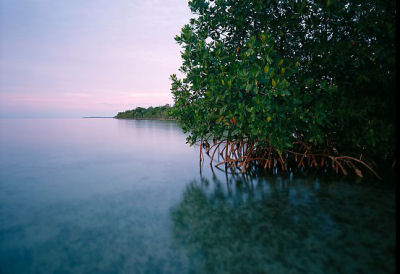
A primary goal of NOAA's Next Generation Strategic Plan (NGSP) is to understand the
vulnerabilities of coastal ecosystems to a changing climate, how climate impacts will influence
the resilience and sustainability of coastal communities, and to develop management tools and
strategies that will best mitigate those impacts. More specifically, the CSI-COCA program aims
to support the development of decision-making networks and innovative transferable tools for
characterizing risks posed by a changing climate, and the promotion and dissemination of this
knowledge and these tools within NOAA, across the federal government, nationally, and beyond.
However, there is a lack of decision-support tools, methods, and capacity necessary to advance,
communicate, and apply our knowledge of climate impacts upon complex human-natural systems in a
manner that will ensure the sustainable delivery of coastal ecosystem services.
Here we propose to fill this gap by developing decision support tools to explore the effect
of urbanization on the sustainability of coastal ecosystem service production under future climate
change scenarios. South Florida is poised for such an investigation, as past scientific syntheses
in the region have resulted in: 1) the development of conceptual ecosystem models linking
ecosystem structure and function to drivers, pressures, and ecosystem services; 2) indicators
that assess the natural and human dimensions components of the ecosystem; and 3) quantitative
models that examine changes in ecosystem state under different climate scenarios. Specifically,
we will take a two-pronged approach to develop multiple lines of evidence for informing
ecosystem-based management decisions. First, we will use expert opinion analysis to develop
semi-quantitative cause & effect networks linking climate and human-development pressures
(e.g. sea level rise, marine construction), local ecosystem states (e.g. coral reefs, seagrasses,
mangroves), and their associated ecosystem services (e.g. commercial extraction, pollution
treatment, protection from storms) under different climate forecasts. A parallel examination will
estimate future changes in ecosystem areal cover, abundance, and quality of focal ecosystem
components under the same climate scenarios. These changes will be linked to the production of
ecosystem services. Both analyses will be applied in three distinct zones of south Florida: 1) the
heavily urbanized southeast coast, 2) the moderately developed southwest coast, and 3) the
relatively undeveloped coast of Everglades National Park in Florida Bay. Through the use of
meta-regression valuation methods we will quantify the economic impact of ecosystem services
under these various climate and urbanization scenarios for both methodologies.
In concert these models will create a decision support tool for exploring how urbanization
and predicted climate may alter ecosystem structure and function, ecosystem service production,
and thus their impact upon the resilience and sustainability of coastal communities. Throughout
the project, we will be meeting with south Florida decision makers representing the National
Park Service, Florida Keys National Marine Sanctuary, the South Florida Ecosystem Restoration
Task Force, coastal counties, and regional planning boards. These regular interactions will
discuss impending management decisions to ensure we are developing decision support tools that
answer real-world management questions in the proper manner, thereby maximizing the utility of
our products to the management community. Ultimately this project will facilitate comparative
analyses of potential management strategies that best mitigate climate change impacts throughout
the south Florida coastal zone, and create a blueprint for transferring these transdisciplinary
methods to other regions of the country.
|
